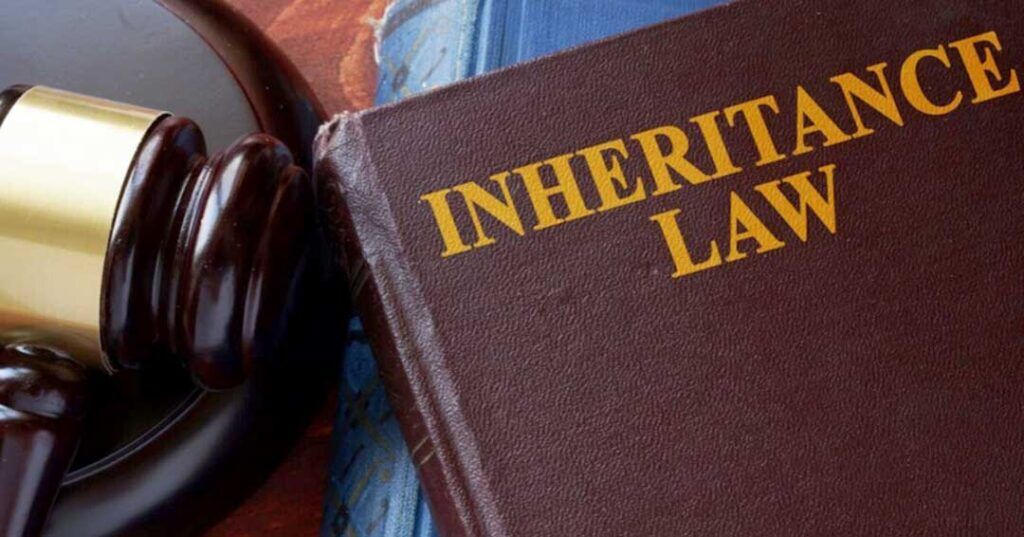What to Do When a Parent Passes Away in Thailand
If your parent retired to Thailand and has passed away here, handling their estate and securing your inheritance can be complicated, depending on whether they had a will in place. Thai inheritance laws automatically divide the estate of the deceased if a will is not present, even with a foreign will, court approval is required to transfer large or immovable assets in Thailand.
This article will cover the first steps you need to take if a relative has passed away in Thailand, as well as the basics of Thai probate law and estate administration regulations. With this information, you will be better prepared to handle this difficult situation and help you settle the estate while securing your rightful inheritance.
What Happens When a Foreigner Dies in Thailand?
If your parent or other close relative was a foreign citizen living in Thailand and has passed away, the first step to take is to notify both the local Thai authorities and the embassy representing their home country. The embassy will prepare a death certificate/confirmation letter, inform your relatives of their demise, and make arrangements for their remains.
After addressing these immediate concerns, determine whether the deceased left a last will and testament in Thailand. If there is one, you can appoint an executor of the estate, who will distribute the assets according to the terms of the will. If no will exists, the person’s estate will be distributed automatically following Thai inheritance law (see below), unless you can convince the court to let you appoint an executor.
A foreign will is generally enforceable in Thailand, provided it does not conflict with Thai inheritance law. However, things get complicated when large and immovable assets are involved, such as land, businesses, cars, or large deposits in Thai banks. These assets require government oversight and court orders to be transferred to heirs.
In each of these cases, especially if significant assets are involved, retaining the services of a Thai probate lawyer will ensure a smoother and swifter resolution to this difficult situation.
What Happens When a Foreigner Passes in Thailand Without a Will?
Thai Inheritance Law determines how the assets of a deceased person will be divided in the absence of a will. The law segments each “statutory heir” into 6 different classes, ranked depending on their relation to the deceased:
- Descendants (Children and Spouse)
- Parents
- Brothers and sisters
- Brothers and sisters (half-blooded)
- Grandparents
- Uncles and aunts
If the deceased has descendants, i.e., a spouse and children, all of their assets will be divided amongst them. If no descendants are present, the entire estate is instead divided amongst the deceased’s parents, and so on down the list.
The court automatically divides and distributes the estate if there is no will, regardless of what the wishes of the deceased may have been. Therefore, if your parent dies in Thailand without a will, their assets in Thailand may not be divided in a way you agree with. Fortunately, with the help of a lawyer, you can contest this and petition the court for an executor of your choice to handle the estate instead.
When a Foreigner Passes in Thailand with a Thai or Foreign Will
Anyone, foreigners included, can create a legally binding last will and testament in Thailand. To avoid the automatic asset division process detailed above, anyone with assets in Thailand should work with a local Thai lawyer to draft a will that aligns with their wishes, even if a will is already in place back in their home country.
If your dad or mom dies in Thailand but a Thai will is in place, it will list who can act as an estate administrator (see below), or who has the right to appoint one. Anyone who is not a minor, mentally unfit, or insolvent can act as the administrator, but it’s best if a lawyer or asset manager handles this complex task.
Thai Inheritance Laws and Foreign Court Judgements
If the deceased had a will that was set up outside of Thailand, you will still face complications, but they should be easier to deal with. You will still need to petition the Thai probate court to allow you to appoint an administrator to distribute their assets in Thailand, but your chances of approval will be much higher. But as mentioned above, if the deceased leaves immovable assets, a foreign will alone will not enable a title transfer of assets.
How Does Probate Work in Thailand?
For you and other beneficiaries to inherit your parent’s assets, their estate will have to go through the Thai probate process. This requires appointing someone as the estate administrator and completing a probate application.
What is an Estate Administrator?
An estate administrator, also known as an “executor of the estate,” is in charge of managing a deceased person’s assets, making sure they are divided correctly and delivered to the rightful beneficiaries. If the deceased person has a will, the estate administrator might be named in it and will be put in charge of handling the estate. If no estate administrator has been named in the will or there is no will in place, the Thai court will intervene by appointing someone to be the executor.
An estate administrator is typically only needed if the estate consists of significant bank account savings, property, vehicles, land, and other possessions that involve either bank or Thai government oversight. If your father’s or mother’s estate consists only of personal belongings (such as furniture and electronics), then an estate administrator likely isn’t needed.
If the will does not name an executor and you want to ensure your parent’s assets are divided according to their wishes and you get what is rightly yours, you want to appoint an estate administrator of your choice. Your lawyer will help you draft a petition that effectively argues why you should have the right to appoint this administrator.
What to Do When a Parent Dies in Thailand
If you’ve lost a parent in Thailand, here are the next steps to take to secure your inheritance:
Contact Your Embassy in Thailand
Reach out to the embassy representing your home country. They will notify your relatives of your parent’s death and assist with official tasks, such as reporting the death to your home government and, if there is no local funeral or cremation planned, arranging the transportation of the body.
Consult the Services of a Bilingual Thai Family Lawyer
Going through probate alone is challenging and frustrating, which is why it’s necessary to consult a bilingual Thai family lawyer to achieve your desired outcome. Thai probate lawyers simplify the probate journey by:
- Locating the will if one isn’t already in your possession
- Guiding you through the court procedures
- Filing a petition to the Thai court on your behalf to appoint an estate administrator
Petition for an Estate Administrator
Whether it’s your lawyer, a person named in your mother’s or father’s will, or another family member, you’ll need someone reliable to properly administer the estate. If there is no will or no designated executor, your lawyer can petition the court to appoint an administrator of your choice.
Make Arrangements to Liquidate Property (If Necessary)
If you’re unable to transfer land, structures, vehicles, or other types of immovable property, you’ll have to liquidate these assets. This is necessary if you’re a foreigner as you cannot inherit certain assets in Thailand, such as land. Your lawyer can guide you through this process, which will require dealing with the government, and can advise on Thai tax and escrow matters.
Expert Bilingual Probate Lawyers in Thailand
If you need expert help to guide you through this difficult time, consult the family lawyers at Siam Legal for professional assistance. Having operated for over 20 years in Thailand, our professional probate attorneys have the knowledge and expertise to resolve your case quickly and get you the inheritance you deserve with minimal stress.
Our legal teams can:
- Draft a legally binding will in Thailand
- Petition the court to appoint an estate administrator of your choice
- Act as your estate administrator to efficiently divide the assets in a manner of your choosing
- Discover hidden assets you may not be aware of
- Advise on tax and escrow matters in the event that liquidation is required
- And more
Contact Siam Legal today, and we’ll help you find closure, honor your parent’s wishes, and secure what’s rightfully yours.
Probate and Inheritance in Thailand: Frequently Asked Questions (FAQ)
What Happens When a US Citizen Dies in Thailand?
If a US citizen passes away in Thailand, their estate is put through the probate process and distributed following the Thai inheritance law if no Thai will is in place.
You’ll also need to report the death to the nearest US embassy in Thailand. The embassy will issue you a Consular Report of Death Abroad with details regarding the person’s demise and their estate.
Can Foreigners Inherit Land in Thailand?
Following Thai law, foreigners aren’t allowed to own land in Thailand and therefore cannot inherit it. If you’re a non-Thai national and you are next in line to inherit a piece of land, you’ll need to liquidate it or transfer it to a Thai citizen. Failure to deal with this inheritance will involve the Director-General of the Thai Land Department, who will dispose of the land and keep 5% of the sale price (minus tax).
Who Inherits the Estate When Someone Dies in Thailand?
All possessions of the person’s estate will pass on to the surviving statutory heirs, which are ranked depending on their relationship with the deceased individual. Children and spouses will be prioritized, but in the absence of these the estate will go instead to more distant relatives, including parents, siblings, grandparents, and so on.
Are Foreign Wills Valid in Thailand?
Most foreign wills are considered acceptable to use as part of the probate process in Thailand. However, complications will arise if some terms conflict with Thai inheritance law, or the deceased possessed certain immovable assets such as real estate. Wills that are in a different language would also need to be translated and legalized.




































